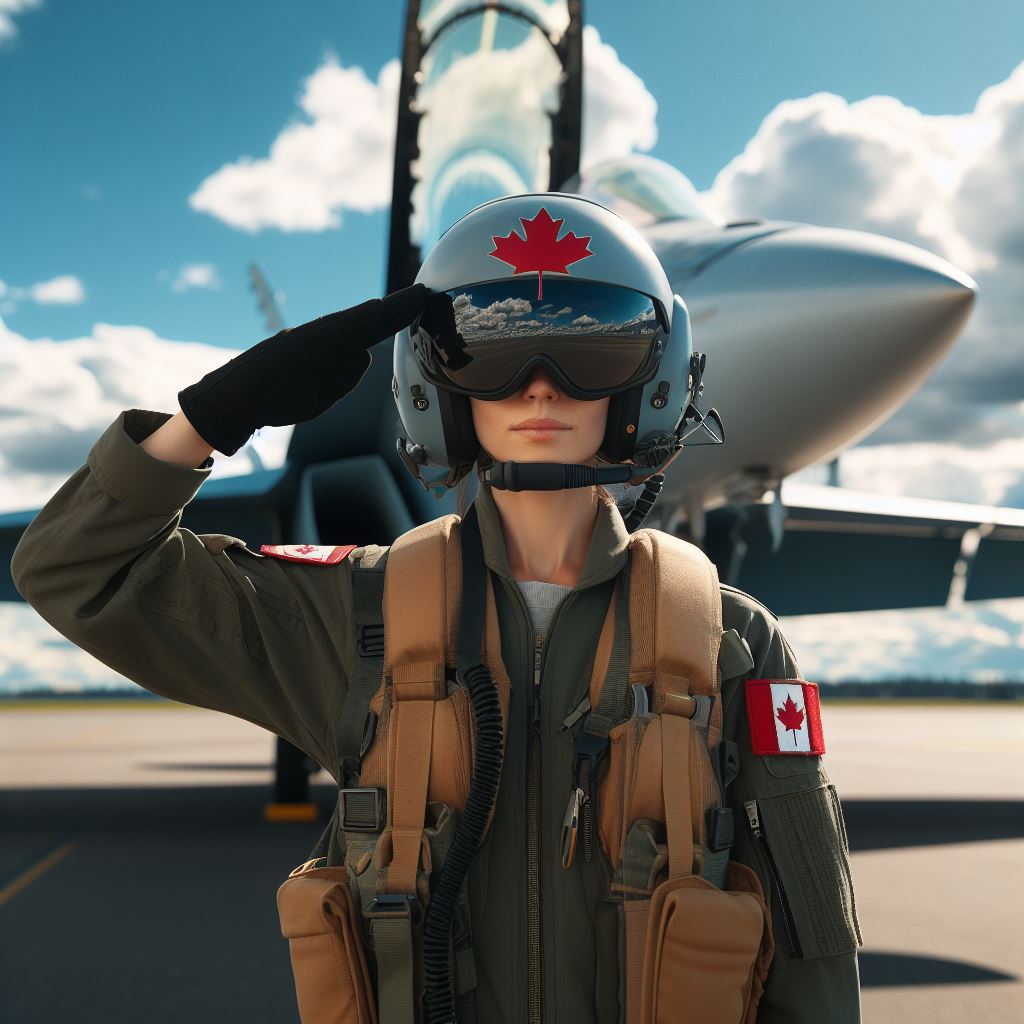Introduction
In the high-stakes world of aviation, stress management is crucial for pilots.
Pilots face unique challenges such as long periods of solitude, irregular sleep patterns, and demanding schedules.
This blog post aims to equip pilots with effective stress management strategies that can be easily implemented.
In the high-stakes and dynamic realm of aviation, stress management stands as a paramount concern for pilots.
The unique challenges inherent in piloting demand a comprehensive approach to maintaining mental and emotional well-being.
As individuals responsible for the safety of passengers and crew, pilots encounter a multitude of stressors, ranging from complex decision-making scenarios to unpredictable weather conditions.
In this intricate landscape, a nuanced understanding of stress management becomes not only beneficial but imperative.
This exploration delves into the significance of stress management for pilots, addressing key factors, effective strategies, and the broader impact on both individual aviators and the aviation industry as a whole.
Understanding the Effects of Stress on Pilots
In the high-pressure and demanding field of aviation, stress can have a significant impact on a pilot’s performance, as well as their overall safety.
It is crucial for pilots to recognize and manage stress effectively to ensure optimal decision-making abilities and situational awareness.
Potential Impact of Stress on Pilot Performance and Safety
When a pilot experiences stress, their cognitive functions can be affected, leading to decreased performance and potentially compromising safety.
The high-stress environment of aviation requires pilots to perform at their best under challenging circumstances, making it essential to understand the potential impact of stressors.
One of the significant effects of stress on pilot performance is impaired decision-making abilities.
Stress can impair a pilot’s ability to process information efficiently, leading to poor judgment and decision-making.
This can have severe consequences in situations where split-second decisions are critical.
Furthermore, stress can also negatively impact a pilot’s situational awareness.
When under stress, pilots may become overwhelmed, resulting in tunnel vision and an inability to effectively process and interpret their surroundings.
This can lead to errors in navigation, communication, and overall awareness of the aircraft’s position and potential hazards.
How Stress Affects a Pilot’s Decision-Making Abilities and Situational Awareness
Stressors, both within and outside the cockpit, can impair a pilot’s cognitive abilities.
When faced with stress, the body triggers the fight-or-flight response, releasing hormones and activating the sympathetic nervous system.
While this response is beneficial in certain situations, prolonged exposure to stress can lead to physical and mental fatigue, reducing a pilot’s ability to make clear decisions and maintain situational awareness.
In times of stress, a pilot’s attention may be diverted, leading to inadequate scanning of instruments, an inability to interpret critical information, or missing important cues in the environment.
Stress can also affect memory and recall, making it difficult for a pilot to access necessary information quickly.
Prolonged exposure to high levels of stress can lead to chronic stress, which can have more severe consequences on a pilot’s mental and physical health.
Chronic stress can lower immunity, increase the risk of burnout, and contribute to fatigue, all of which can further compromise a pilot’s overall performance and safety.
Unlock Your Career Potential
Visualize a clear path to success with our tailored Career Consulting service. Personalized insights in just 1-3 days.
Get StartedExamples of Stressful Situations Pilots May Encounter During Their Career
Pilots face numerous stressful situations throughout their careers, ranging from adverse weather conditions to equipment malfunctions and emergency situations.
Some examples include:
- Extreme weather conditions, such as thunderstorms, heavy turbulence, or low visibility, requiring precise decision-making and navigation.
- Emergency situations, like engine failures or in-flight medical emergencies, which demand quick thinking and effective communication with air traffic control.
- Time pressure, such as meeting tight schedules, dealing with delays, or managing long-haul flights that can contribute to exhaustion.
- Unusual or unexpected events, including bird strikes, cabin depressurization, or diverting to unfamiliar airports, increasing cognitive load and stress levels.
In fact, stress can significantly impact a pilot’s performance, decision-making, and situational awareness, potentially compromising safety.
It is essential for pilots to be aware of the effects of stress and employ effective stress management techniques to optimize their performance in demanding aviation environments.
Read: Pilot Career Progression in Canada
Identifying the Sources of Stress for Pilots
Piloting an aircraft is a demanding and high-pressure job that can often lead to stress.
It is important for pilots to understand the various sources of stress they may encounter in order to effectively manage and mitigate their impact on their mental health and overall well-being.
In this section, we will explore some common sources of stress for pilots and discuss additional stressors specific to the aviation industry, while encouraging pilots to reflect on their own personal stress triggers.
Common Sources of Stress for Pilots
- Long working hours: Pilots often have irregular and long working hours, which can lead to fatigue and disrupt their circadian rhythm.
- Irregular schedules: Frequent changes in schedules can make it difficult for pilots to maintain a stable routine and can cause disruptions in their personal and social life.
- Time away from family: Pilots often have to spend extended periods away from their loved ones, leading to feelings of isolation and missing out on important family events.
These factors can contribute to chronic stress, impacting pilots’ mental health and overall quality of life.
Additional Stressors in the Aviation Industry
Aside from the common sources of stress mentioned above, pilots in the aviation industry face unique stressors that come with their occupation.
- Dealing with emergencies: Pilots are trained to handle emergencies, but the high-pressure situations they encounter during flight can still be extremely stressful.
- High-pressure situations: The responsibility of safely transporting passengers, combined with the need for quick decision-making, can create high-pressure situations that induce stress.
- Strict regulations and protocols: Pilots must adhere to strict regulations and protocols, which can create additional pressure and stress during their day-to-day operations.
- Continuous training and evaluation: Pilots are constantly under scrutiny through evaluations and continuous training programs, adding pressure to perform well and maintain their professional competence.
These industry-specific stressors require pilots to develop effective coping mechanisms and stress management strategies.
Reflecting on Personal Stress Triggers
While the common sources of stress and additional stressors in the aviation industry provide a general framework for understanding stress, it is important for pilots to identify and reflect on their own personal stress triggers.
Each individual pilot may have unique factors that contribute to their stress levels, such as the fear of flying, work-life imbalance, or performance anxiety.
Taking the time to reflect on these triggers can help pilots develop customized strategies for stress mitigation.
In short, being aware of the sources of stress for pilots is the first step towards effective stress management.
By acknowledging the common sources of stress, understanding the additional stressors specific to the aviation industry, and reflecting on personal stress triggers, pilots can develop a comprehensive approach to managing stress and improving their overall well-being.
Read: Regional vs. International Pilots
Importance of Self-Care for Pilots
The significance of self-care in maintaining overall well-being and managing stress
As a pilot, it is crucial to prioritize self-care in order to maintain your overall well-being and effectively manage stress.
Neglecting self-care can have detrimental effects on both your mental and physical health. Here are a few reasons why self-care is of utmost importance for pilots:
Mental Well-being
The demanding nature of a pilot’s job can take a toll on their mental health. Engaging in self-care activities helps to alleviate stress and maintain a healthy mindset.
Taking time for oneself allows pilots to recharge and rejuvenate, enhancing their overall mental well-being.
Example of self-care practices
- Practicing mindfulness and meditation
- Engaging in creative hobbies or activities
- Taking regular breaks and days off
- Journaling or venting to release emotions
Physical Health
Pilots must prioritize their physical health to perform optimally and ensure flight safety. Neglecting self-care can lead to fatigue, illness, and decreased cognitive abilities.
Incorporating healthy habits into their routine will boost their energy levels and immune system.
Example of self-care practices
- Maintaining a well-balanced diet and staying hydrated
- Getting enough sleep and having a consistent sleep schedule
- Engaging in regular exercise or physical activity
- Practicing good hygiene and taking care of personal grooming
Stress Management
The aviation industry is known for its high-pressure environment.
Self-care practices equip pilots with effective stress management techniques, enabling them to cope with the demands of their job.
This, in turn, leads to better decision-making skills and overall performance.
Example of self-care practices
- Engaging in deep breathing exercises
- Listening to calming music or podcasts during leisure time
- Engaging in hobbies or activities that bring joy and relaxation
- Seeking support from friends, family, or support groups
Work-Life Balance
Maintaining a healthy work-life balance is essential for pilots to thrive personally and professionally.
Self-care activities outside of work help pilots switch off from work-related stress and focus on their personal lives, fostering healthier relationships and overall life satisfaction.
Example of self-care practices
- Setting boundaries and adhering to a schedule
- Creating a supportive network of friends and family
- Prioritizing hobbies and interests outside of aviation
- Taking vacations and breaks to disconnect from work
In essence, prioritizing self-care is vital for pilots to maintain their well-being and effectively manage stress.
By incorporating self-care practices into their routine, pilots can not only improve their mental and physical health but also enhance their overall job performance and enjoyment in their personal lives.
Read: Canadian Pilots’ Role in Safety

Discover More: Effective Team Management in Canadian Logistics
Specific Stress Management Strategies for Pilots
Being a pilot comes with its unique set of stressors, from long hours to high-pressure scenarios.
It is essential for pilots to have effective stress management techniques to ensure their well-being and job performance.
Here are some specific strategies that can be beneficial for pilots:
Mindfulness and Meditation
One powerful technique for managing stress is mindfulness. This practice involves being fully present in the moment, without judgment.
Pilots can incorporate mindfulness into their daily routines by focusing on their breath and sensations during flights.
Additionally, dedicating a few minutes to meditation before or after a flight can significantly reduce stress levels.
The Importance of a Support Network
Maintaining a strong support network is crucial for pilots to manage stress effectively.
Colleagues, friends, and family members can provide emotional support and understanding.
Having someone to talk to about work-related challenges can alleviate stress and provide valuable insights.
Pilots should actively foster and nurture these relationships, both inside and outside of their professional lives.
Engaging in Stress-Reducing Activities Outside of Work
Pilots should prioritize engaging in activities that help reduce stress outside of work.
Hobbies such as painting, playing an instrument, or engaging in sports can provide a much-needed outlet for stress relief.
Spending time in nature, whether it’s hiking, gardening, or simply taking a walk, has also been proven to reduce stress levels.
By actively pursuing these activities, pilots can maintain a healthy work-life balance and enhance their overall well-being.
Proper Time Management
Effective time management plays a significant role in stress reduction for pilots.
Planning ahead and setting realistic goals can prevent unnecessary stress and overwhelm.
Pilots should prioritize tasks and allocate time for breaks and relaxation.
By having a well-organized schedule, pilots can reduce the chances of feeling overwhelmed and maintain control over their workload.
Exercise and Physical Health
Regular exercise is a proven stress management technique.
Pilots can incorporate exercise into their routines by engaging in activities like yoga, running, or weightlifting.
Exercise not only releases endorphins, which boost mood and reduce stress, but it also helps maintain physical health and overall well-being.
Sleep and Rest
Getting enough sleep is crucial for pilots to manage stress effectively.
A lack of sleep can impair cognitive function and increase the risk of accidents.
Pilots should prioritize quality sleep and establish a bedtime routine that promotes relaxation.
Taking regular breaks and allowing for sufficient rest between flights is also essential for mental and physical recovery.
In a nutshell, managing stress is of utmost importance for pilots to ensure their well-being and job performance.
By incorporating mindfulness and meditation practices, maintaining a strong support network, engaging in stress-reducing activities, managing time effectively, prioritizing exercise and sleep, pilots can minimize stress levels and enhance their overall quality of life.
Read: Pilot Unions in Canada: A Guide
Implementing Stress Management in the Aviation Industry
The role of airlines and aviation organizations in promoting stress management among pilots
The aviation industry is a high-stress environment, especially for pilots who are responsible for the safe operation of aircraft and the lives of passengers.
It is crucial for airlines and aviation organizations to recognize the importance of promoting stress management among pilots and providing them with the necessary training and resources.
To begin with, airlines and aviation organizations play a vital role in promoting stress management among pilots.
They need to prioritize the well-being of their pilots and create a supportive work culture that encourages open communication and seeking help when needed.
By fostering a positive environment, pilots will feel more comfortable discussing their stress-related concerns and seeking appropriate help.
The importance of providing training and resources for pilots to effectively manage stress
Providing training and resources for pilots to effectively manage stress is of utmost importance.
Pilots face various stressors such as long working hours, irregular schedules, and demanding operational conditions.
By offering comprehensive stress management training programs, pilots can learn coping mechanisms and techniques to handle stress effectively.
This training should address physical, mental, and emotional well-being, equipping pilots with the necessary skills to manage stress both in and out of the cockpit.
Additionally, airlines can ensure that pilots have access to resources such as counseling services, support groups, and wellness programs.
These resources can serve as a safety net, offering professional guidance and support to pilots experiencing stress-related issues.
By investing in the well-being of pilots, airlines can not only improve pilot performance but also enhance passenger safety and satisfaction.
Successful initiatives or programs that have been implemented in the aviation industry to support pilot well-being
Several successful initiatives and programs have been implemented in the aviation industry to support pilot well-being.
For example, some airlines have established confidential hotlines that pilots can utilize to seek help and support for stress-related issues.
These hotlines are operated by trained professionals who can offer guidance and resources to pilots in need.
Furthermore, some airlines have incorporated mindfulness training into their pilot training programs.
Mindfulness training helps pilots develop greater self-awareness, focus, and emotional resilience.
These skills are invaluable when it comes to managing the high-pressure situations that pilots often face.
Moreover, aviation organizations have partnered with experts in stress management to develop customized programs for pilots.
These programs focus on techniques such as meditation, relaxation exercises, and cognitive behavioral therapy.
By tailoring these programs to the unique challenges faced by pilots, organizations can ensure that pilots receive the most effective support in managing their stress.
In summary, promoting stress management in the aviation industry is crucial for the well-being of pilots and the overall safety of the industry.
Airlines and aviation organizations must take an active role in creating a supportive work culture, providing comprehensive training, and offering resources to help pilots effectively manage stress.
By investing in the well-being of pilots, the aviation industry can ensure that pilots continue to perform at their best and maintain the highest level of safety in the skies.
Gain More Insights: Navigating Logistics Laws in Canada: A Primer
Conclusion
Stress management is of utmost importance for pilots in ensuring their own well-being and the safety of their passengers.
The key points discussed in this blog post include the recognition of stress symptoms, the importance of self-care, the benefits of physical activity and relaxation techniques, the significance of social support, and the importance of maintaining a positive mindset.
By proactively implementing the suggested stress management strategies, pilots can significantly reduce their stress levels and enhance their overall well-being.
They can ensure that they are in optimal mental and physical condition to effectively carry out their duties and handle any potential challenges that may arise during flights.
It is crucial for pilots to prioritize their own self-care and actively engage in stress management techniques, both in their professional and personal lives.
By doing so, they can better cope with the demands and pressures of their job, improve their decision-making abilities, and maintain a positive and calm mindset even in high-stress situations.
Ultimately, stress management is not just beneficial for pilots individually, but also for the safety and comfort of their passengers.
By taking proactive measures to manage their stress, pilots can create a positive and stress-free environment within the cockpit, which directly contributes to the overall safety of the flight.
Therefore, it is strongly encouraged that pilots prioritize their well-being and proactively implement the suggested stress management strategies to maintain their mental and physical health, ensuring a smooth and safe flying experience for themselves and their passengers.




